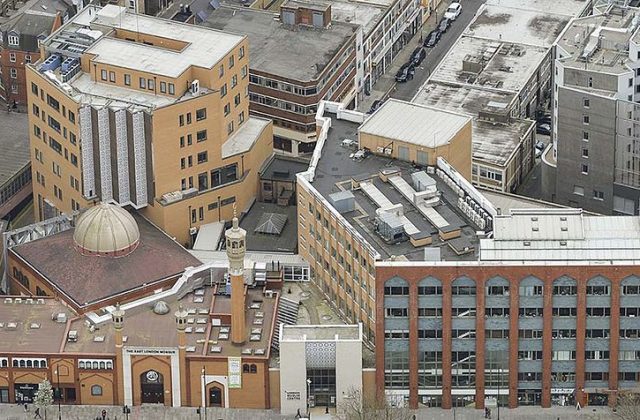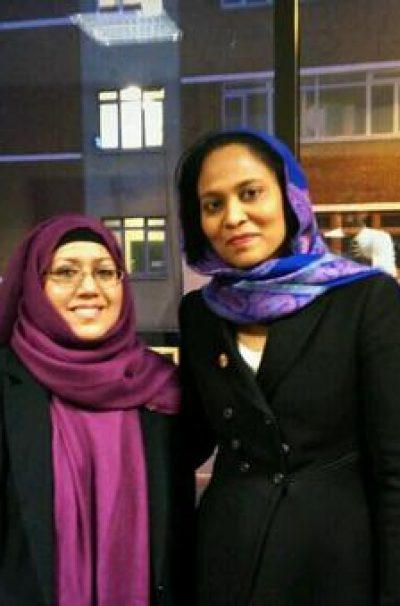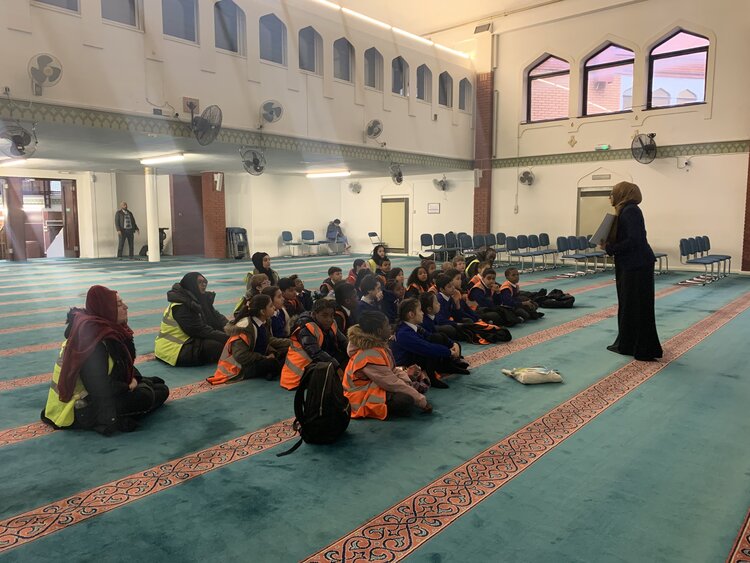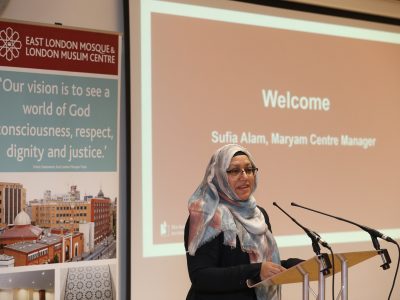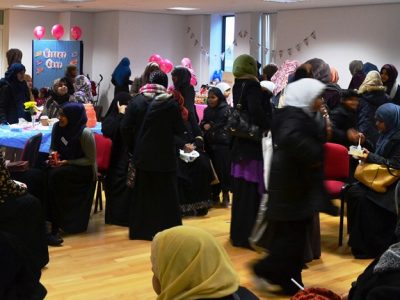Maryam Centre
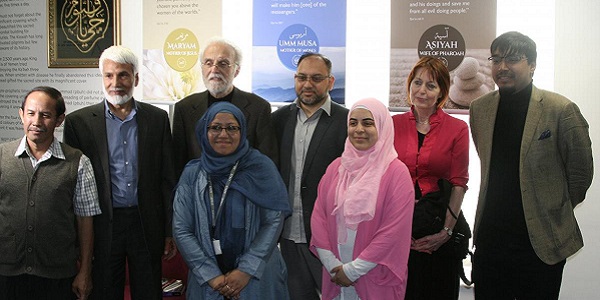
Prof John Esposito visits Mosque Archives
THE EAST LONDON MOSQUE and London Muslim Centre were pleased to welcome Professor John Esposito when he visited the Mosque on 23rd June.
Prof. Esposito is a founding director of the Prince Alwaleed Bin Talal Centre for Muslim-Christian Understanding, as well as being a director of The Bridge Initiative at Georgetown University. He is the author of many books, including Sharia: What Everyone Needs to Know; Islam and Democracy after the Arab Spring; What Everyone Needs to Know about Islam; and The Future of Islam.
Dilowar H Khan (Director of Finance & Engagement) and Dr Muhammad Abdul Bari (Trustee and former Secretary General of the Muslim Council of Britain) took Professor Esposito on a guided tour of the London Muslim Centre.
The Professor went on to visit the ELM Archives, where he was shown exhibits by Dr Jamil Sherif (Chair, ELM Archives Steering Group) and Sufia Alam (Maryam Centre Manager).
Professor Esposito then spoke to a large interfaith group on a peace walk, who had been visiting the Mosque as part of the Open Day. He went on to take part in an interactive roundtable chaired by ELM Trust member Dr Abdullah Faliq and attended by a number of distinguished guests including Dr Maria Holt, Reader at Westminster University, and Arifin Hassan from Malaysia.
In a recorded video interview, Professor Esposito said, “It has been more than ten years since I last visited this mosque. It has changed and expanded significantly, and that is indicative of the hard work and dedication that has gone into maintaining and developing this great place of worship. I am also very encouraged to see the opening of the ELM Archives which is a significant step in preserving Muslim history in Britain. I congratulate all those involved with the Archives and the mosque for taking such a bold step.”
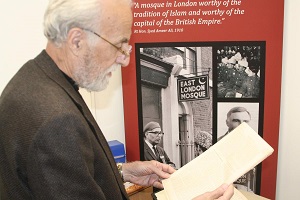
Professor Esposito looks at items in the Mosque archive.
Update & Links
Extremism Backlash: British Muslims Grapple With Faith, Patriotism
LONDON — Recent attacks by Islamist extremists in France and Denmark as well as well-publicized executions by an ISIS militant who appears to speak with a British accent have turned the spotlight on Europe’s 13 million Muslims.
In the mostly secular U.K., the threat level for international terrorism remains at “severe,” which means that security officials believe an attack is highly likely. Last week, London’s Metropolitan Police revealed that three teenage girls were believed to have run away from home to travel to an ISIS-controlled part of Syria.
Jewish institutions and schools are on high alert across Britain. First-in-line-to-the-throne Prince Charles recently joined the debate when he referred to the radicalization of young people as being “one of the greatest worries.” A full quarter of the population admitted in a 2014 Pew Research Center poll that they have an “unfavorable” view of Muslims.
Some commentators argue that tolerance has contributed to Britain becoming a breeding ground for radical Islamists.
With growing questions about what Muslims can and should do to combat extremism in their ranks, NBC News met with members of London’s Islamic community to get their side of the story.
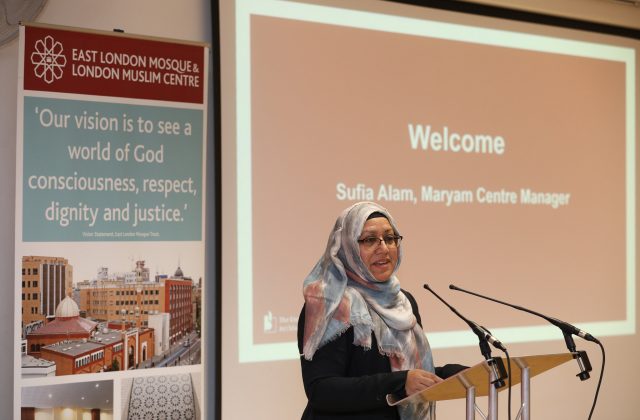
Sufia Alam, a 43-year-old mother-of-three who migrated from Bangladesh with her parents in the 1970s, is the manager of women’s projects at a mosque in East London. Her work involves helping vulnerable women, tackling social and welfare issues and focusing on domestic violence and mental health. Alam also works closely with women in their community to help them integrate by, for example, teaching them how to cook traditional British food.
Every time a terrorist attack is committed in the name of Islam, she worries about anti-Muslim backlash and how that might affect her three daughters, Alam said.
“My daughter goes to university and the first time she heard about the Charlie [Hebdo] cartoons she said, ‘Oh no, now we’re going to be targeted.’”
Every time a terrorist attack is committed in the name of Islam, she worries about anti-Muslim backlash and how that might affect her three daughters, Alam said.
“My daughter goes to university and the first time she heard about the Charlie [Hebdo] cartoons she said, ‘Oh no, now we’re going to be targeted.’”
A challenge for devout Muslim woman is that it is impossible to hide your faith, Alam added.
“As a woman you wear your headscarf, so you’re clearly a Muslim, you’re making that statement,” she said.
Attacks like those in France have even forced Alam to defend her beliefs to her own children, which is painful.
“We have to then explain to them that in our faith there isn’t anything about this behavior and those who do it are not of this religion,” Alam said. “They to do it in the prophet’s name, in God’s name, that’s not right.”
“And a lot of [Muslim] people feel the same way, there is no doubt in people’s minds,” she said.
Muslim women, inequality, abuse, islamophobia
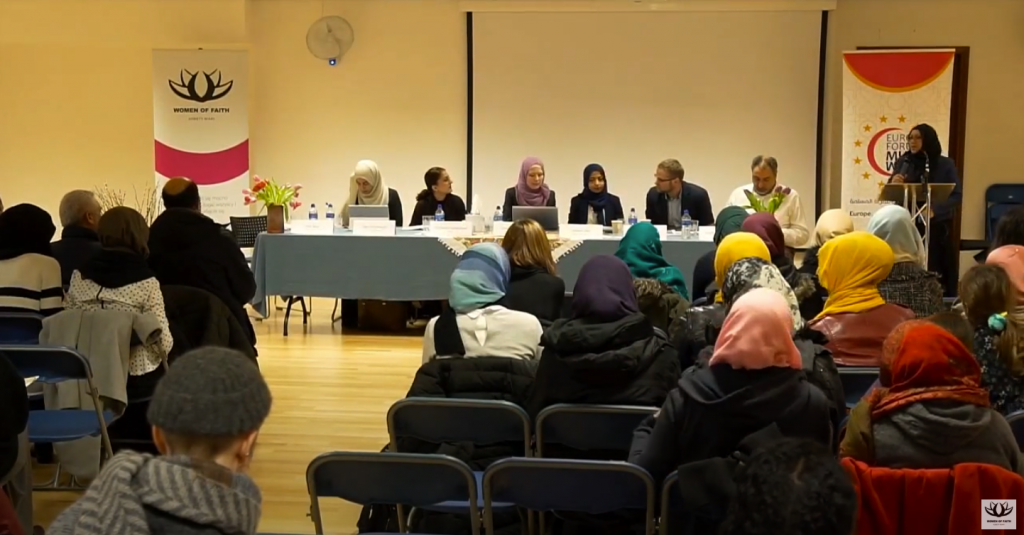
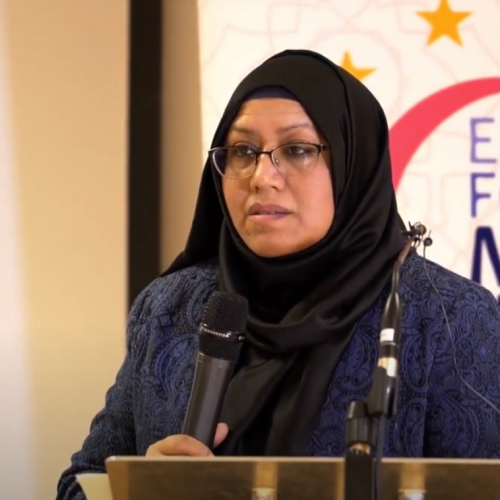
The East London Mosque
To start this process, we will return to a specific place, but this time to consider how it is used by those who go there. Here we are going to look at the East London Mosque on Whitechapel Road. London’s Muslim population originated from the Muslim seamen who arrived in the nineteenth century. Often they were paid off from their ships and obliged to seek accommodation until they could find new employment or passage home. Sometimes they ended up remaining in London. Since then, there have been several other waves of Muslim immigration to Britain. In London, many immigrants settled in the East End and the first provisions for communal Muslim worship were in converted residential spaces in the area. Today’s purpose-built mosque was completed in 1985.
Mosques are primarily a place where Muslim communities can gather for prayer. However, mosques are also used for a wide variety of religious instruction and other communal activities. As scholar Sophia Gilliat-Ray explains, mosques:
Exist at the heart of the community and all the obligations associated with the five ‘pillars’ of Islam involve mosques in one way or another. … Mosques are spaces for discussion and debate, for the settlement of disputes, for the performance of rites of passage, for education and for social welfare.
The East London Mosque has sought to expand its ability to serve a variety of functions for its community. It added a building to host more community services, the London Muslim Centre, in 2004. It completed building the Maryam Centre, making specific provision for women, in 2013.
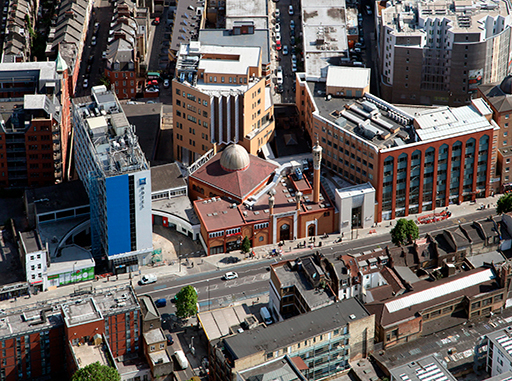
Figure 15 East London Mosque, Whitechapel, London, aerial view.
The London Muslim Centre and the Maryam Centre
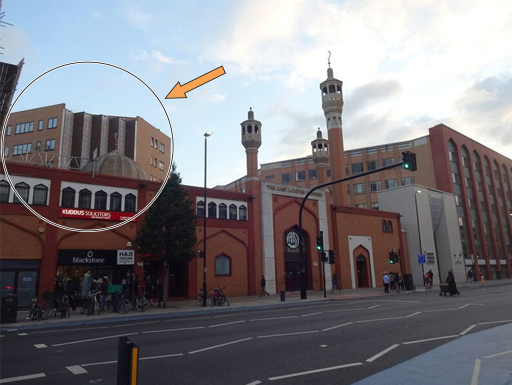
Figure 16 The position of the Maryam Centre in relation to the East London Mosque and London Muslim Centre. Photo: Roshni Amin
The London Muslim Centre hosts a large range of community services, including education for children in supplementary schools and education in Islam and Arabic for all members of the community. There are also a number of culturally specific charities hosted by the Centre. These include the Somali Development Association (Al Shafie Institute) and the North African Community Association (NACA). The Centre offers pro bono legal advice for members of the community. It also includes a library and archives documenting its history and activities.
Historically, Muslim women’s use of mosques has been significantly different from that of men (Katz, 2014, p. 7). Women are not required to attend collective prayers in mosques on Friday. There are also regulations regarding modesty, dress codes and the avoidance of sexual temptation by separating the genders, particularly during prayer time.
Although the primary purpose of the Maryam Centre was to provide prayer facilities for women, it has come to hold a much broader role.
PUBLIC MEETING REGARDING RSE

